‘This Will Happen Again!’ Fire Devastates Rohingya Refugee Camp in Haryana
Photo story
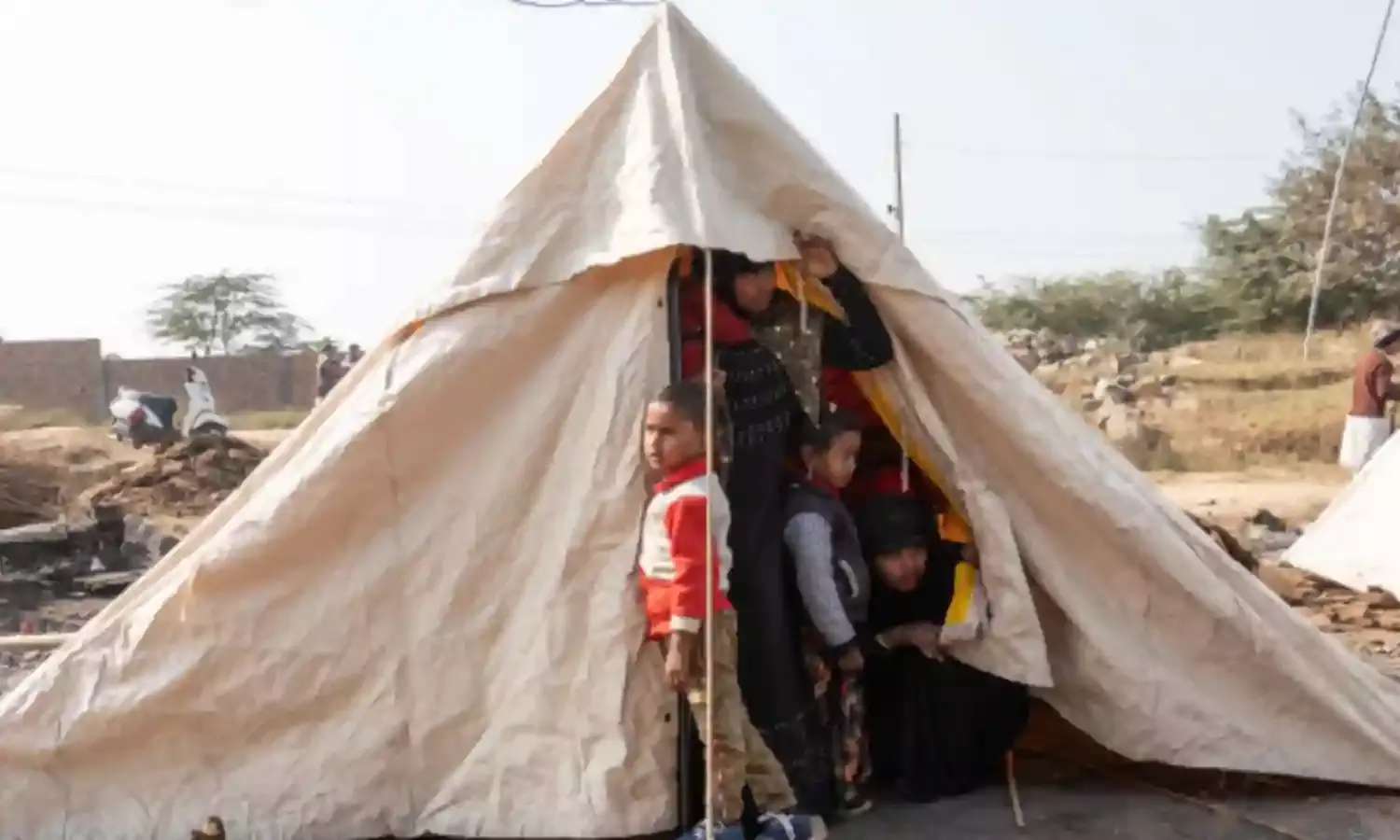
On a cold winter evening, Yasin is at work some 18 km away from his home, in dire need to earn enough money to survive the harsh winters of northern India. It is more challenging than it used to be for Yasin and his family.
“Nothing is left behind! Except the compulsion to survive this cold with nothing. It took away everything we had collected over the years. It’s all in ashes now,” says the 18 year old, showing the spot where his home and shanty stood for the last ten years.
Yasin, a Rohingya Muslim by ethnicity is one of 106 people rendered homeless by a massive fire that broke out in the Rohingya refugee camp in the Ferozepur Namak village in Nuh, Haryana.
The night of December 16 came as a nightmare to the residents. The massive fire gutted over 32 shanties, leaving behind mounds of ash and helplessness.
Fire incidents in Rohingya refugee camps in India have been common for the past few years. In 2021 alone, there were instances of fire mishaps at Rohingya settlements in Kanchankunj in Delhi, in Jammu, and Nuh is the latest in the queue.
“There is no permanent solution to this problem. As long as permanent structures are not built for them, this will happen again!” says 24 year old Arbab Ali, a Muslim rights activist who has been here since the incident took place. The fire is alleged to have been caused by an electric short circuit.
A few NGOs along with locals have joined hands to help the residents of the camp to get back on their feet.
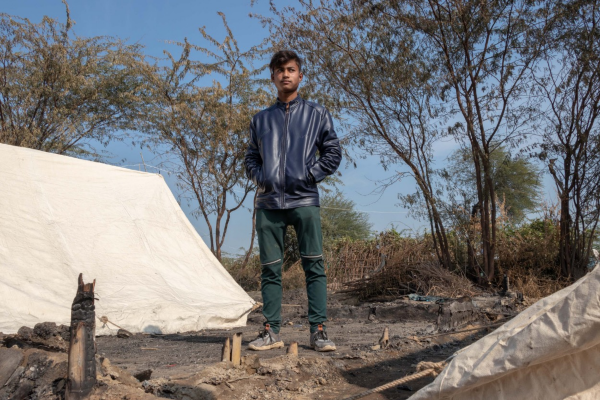
Mohommad Yasin, 18, stands where his shanty once stood. He works as a helper at a hotel in Sohna to support his family of seven. It includes his ailing mother, three brothers and two sisters
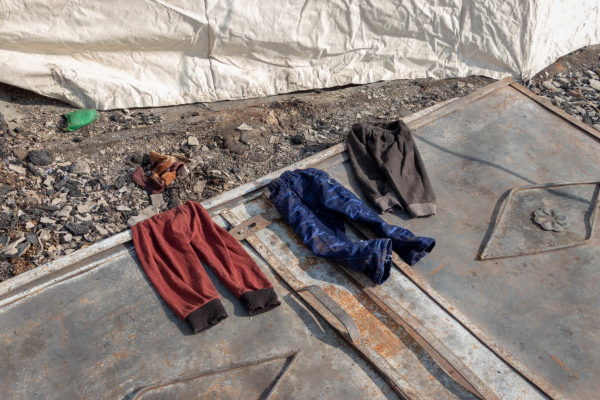
The fire has resulted in loss of food, shelter and investments of years. The survivors are left with nothing but the clothes they wore that day. Infants and children are the ones suffering the most due to the sharp drop in temperatures
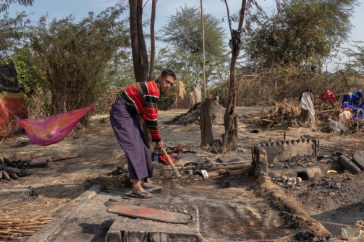
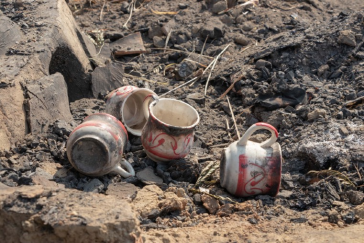
Ismail cleans up the debris to make room for a toilet. He crossed the border to India ten months ago to find a better living. But all his aspirations have been shattered by the incident
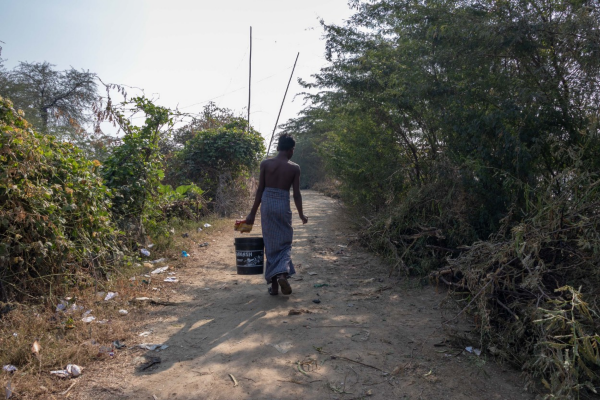
A resident walks back to the settlement after taking a bath at a tubewell in the nearby fields. With no appropriate washrooms, the residents are forced to go to fields to relieve themselves and bathe. Even though an NGO has constructed around five temporary washrooms in the camp, the density of residents overpowers its use
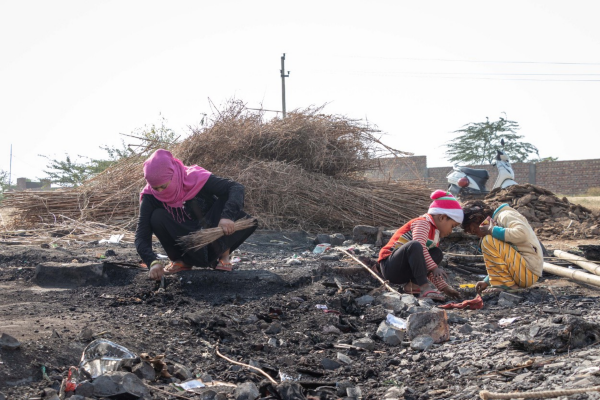
Majma Begum sifts through the ashes of her burnt home to find any of their valuables, while her children play on the side
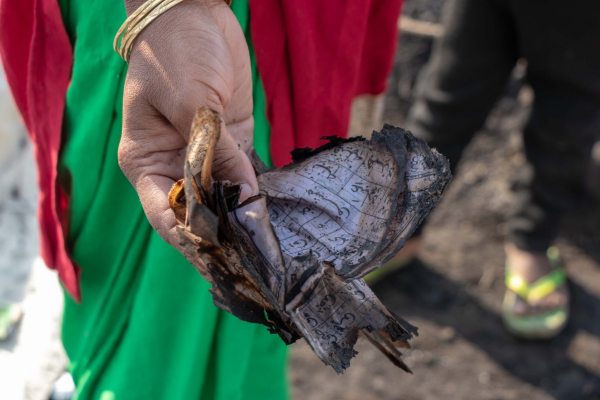
A resident shows the remains of a Quran destroyed by the fire
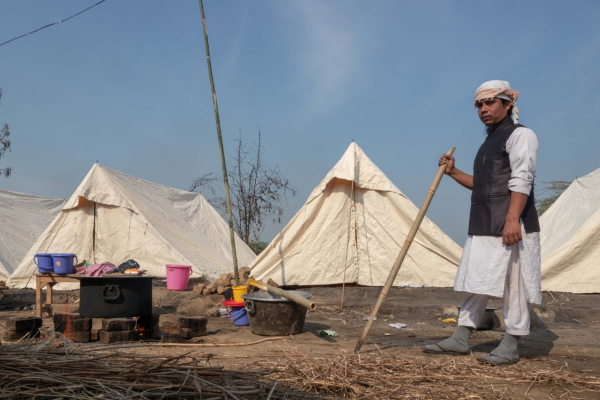
Mohammad Younus, the imam of the camp’s mosque, helps in the community kitchen at the camp. “The fire took place after evening prayers around seven. Most of the residents had not returned from work and this gave the fire a clear way to spread. The cylinders in the shanties turned it into a massive one, bringing everything to the ground,” says Younus, one of the eyewitnesses to the tragedy. He thinks it is time to help each other with whatever we can. Therefore, he devotes more of his time helping the residents than in the mosque
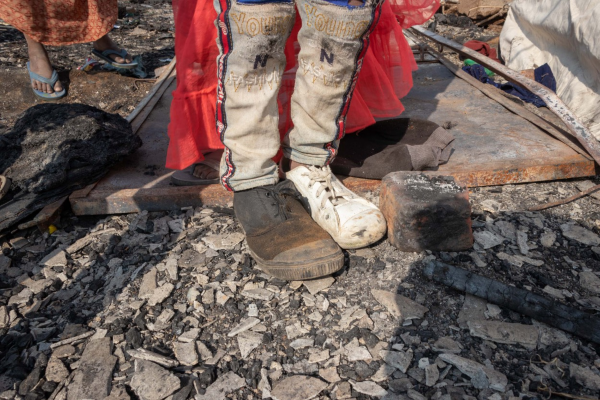
Chhavul, 6, a little resident of the camp, can’t figure out if his shoes are of the same pair or different. He just remembers that these are his shoes which he found at his home
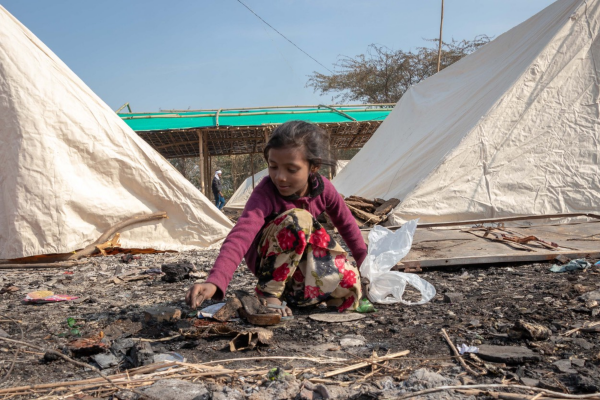
A girl searches for metallic waste through the debris to barter it for eatables afterwards. Children of the camp spend their days walking amidst the hazardous waste and debris, sifting through it to find things to play with
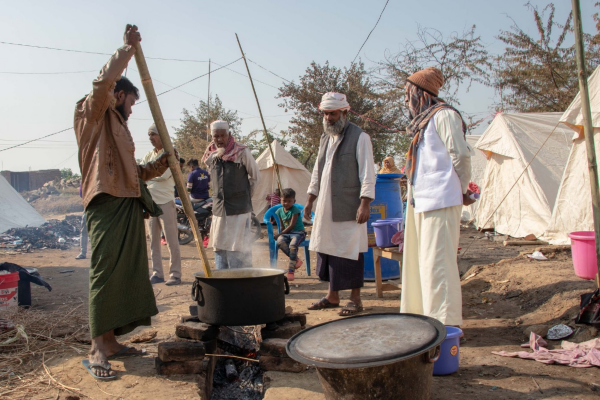
Residents prepare meals in the community kitchen set up by an NGO at the camp
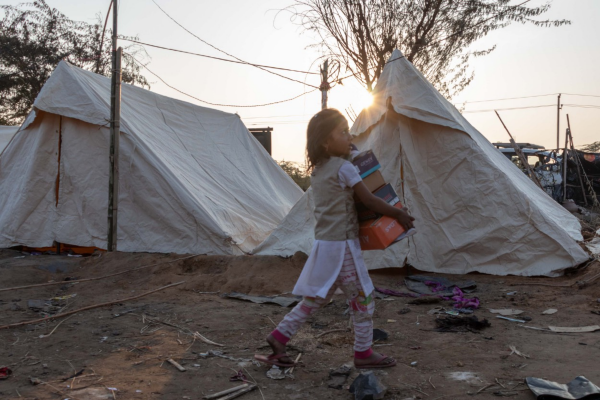
A girl walks towards the tent after receiving aid provided by an NGO at the camp
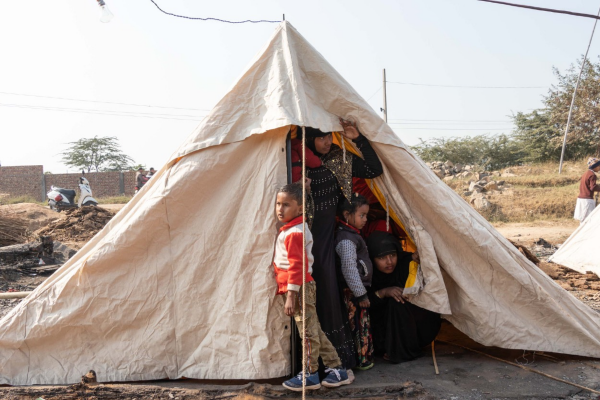
A family looks out of a tent at the Rohingya settlement. Tents have been put up in place of the shanties to temporarily accommodate the survivors. The tents, with a capacity of hardly two people each, are packed with families of 106 people who lost their shanties to the fire
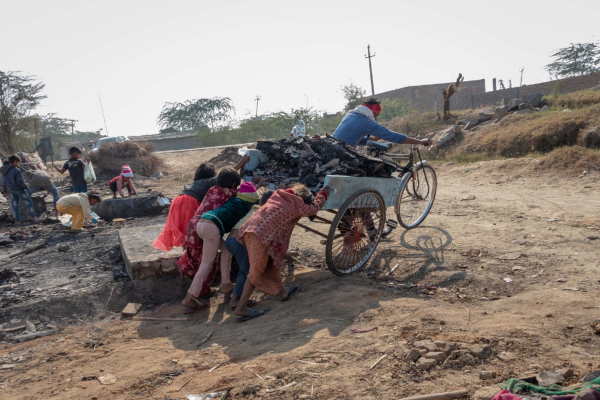
Children push a cart carrying the debris of burnt shanties at the refugee camp. Although the majority of residents of the camp are left with nothing, they are still hopeful of building everything again from scratch
“We have come a long way from our homeland with only one motive, that is to live. God willing, we will live through this also,” replies Shubika when asked how tough it will be for him to move on from this tragedy.
Ashish Kumar Kataria is an independent documentary photographer based out of Haryana, India



